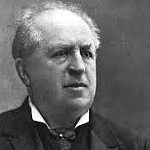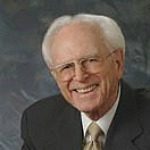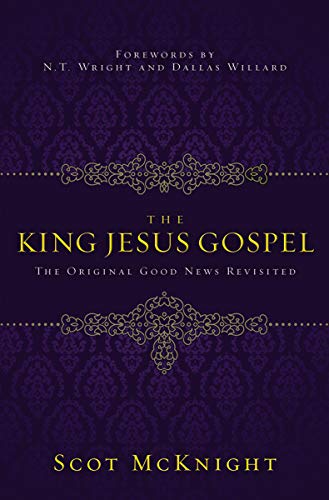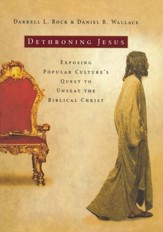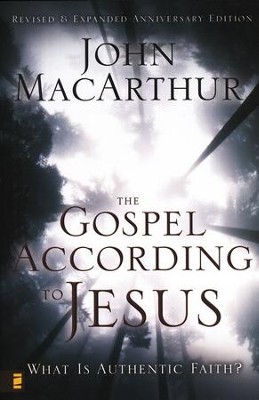Quotes about Jesus_Christ-Lordship
The Greek word…Kurios can mean the teacher who has authority over disciples, the master who has command over servants, or the lord who has power over all. With Jesus, all three meanings apply.
We often hear the “Savior” characteristics of God stressed – His love, mercy, goodness and so on – but the matter of His lordship is absent. The distortion is particularly clear in evangelism. In modern practice the call to repentance is usually called an “invitation,” which one can obviously accept or refuse. It is offered politely. Seldom do we hear presented God’s sovereign demand to repent or His demand for total submission to the authority of His appointed king, Christ Jesus.
Taken from “Foundations of the Christian Faith-Book I” by James Montgomery Boice, page 120. (c)1986 InterVarsity Christian Fellowship of the USA, Revised edition. Used by permission of InterVarsity Press, P.O. Box 1400, Downers Grove, IL 60515. Get this book!
[Some] take some things of Christ not the whole Christ. They think it’s only believing on Him as a Saviour for pardon of sin; they do not choose Him as Lord to whom in all obedience they resign themselves. This is indeed the rock that splits many, tell them of believing in Christ, and they think that is only to rest on Him for salvation, they attend not that it is receiving of Christ for all ends and purposes God sent Him into the world.
The sentimental Christmas may be popular as a religious holiday for some because it can come off as celebrating the birth of a helpless baby. Jesus lies in a manger to be gazed upon and adored, but not to be heard and heeded. A speechless babe wrapped tightly in swaddling cloths seems more obliging in allowing people to tailor their religious beliefs however they see fit.
What our Lord said about cross-bearing and obedience is not in fine type. It is in bold print on the face of the contract.
A wife who is 85% faithful to her husband is not faithful at all. There is no such thing as part-time loyalty to Jesus Christ.
All the grace contained in [the Bible] is owing to Jesus Christ as our Lord and Savior; and, unless we consent to Him as our Lord we cannot expect any benefit by Him as our Savior.
In order for any to have Christ as their Saviour they must first have received Him as their “Lord” (Col. 2:6; Acts 2:36), as their King to rule over them, for God saves none in their rebellion against Him. We must cease our rebellion against Him and His authority and give Him the throne of our hearts as our ruler or He is not our Saviour no matter what our profession.
Clearly many Christians have not embraced the fact that Christians must be committed to Christ and His teachings. They may have mentally assented to certain gospel facts…joined a church…repeated a prayer…walked forward at an evangelistic meeting. But by any biblical measurement they were never converted. There was no transforming conviction of sin, no repentance, no commitment to Christ’s lordship, no love for those who love Christ.
Jesus Christ is no princelet or kinglet, and not merely a king, but “King of kings and Lord of lords” (Revelation 19:16). Thus when you confess that “Jesus Christ is Lord” you at once confess His incarnation and His Messiahship and His lordship, sealed by His glorious resurrection as He now forever reigns.
Doing Ministry by Kent Hughes taken from 2 Corinthians by Kent Hughes, copyright 2006, Crossway Books, a division of Good News Publishers, Wheaton Illinois 60187, www.crosswaybooks.org, p. 86.
No single piece of our mental world is to be hermetically sealed off from the rest, and there is not a square inch in the whole domain of our human existence over which Christ, who is Sovereign over all, does not cry: “Mine!”
A man who was merely a man and said the sort of things Jesus said would not be a great moral teacher. He would either be a lunatic – on a level with the man who says he is a poached egg – or else the Devil of Hell. You must make your choice. Either this man was, and is, the Son of God: or else a madman or something worse. You can shut him up for a fool, you can spit at him and kill him as a demon, or you can fall at his feet and call him Lord and God. But let us not come with any patronizing nonsense about his being a great moral teacher. He has not left that open to us. He did not intend to.
We do not “make” Christ Lord; He is Lord! Those who will not receive Him as Lord are guilty of rejecting Him. “Faith” that rejects His sovereign authority is really unbelief. Conversely, acknowledging His lordship is no more a human work than repentance (cf. 2 Timothy 2:26) or faith itself (cf. Ephesians 2:8-9). In fact, it is an important element of divinely produced saving faith, not something added to faith.
The Gospel According to Jesus, © John MacArthur, 1988, p. 28. Get this book!
A Christian is not one who simply buys “fire insurance,” who signs up just to avoid an unpleasant after life. A Christian…repeatedly, is one whose faith expresses itself in submission and obedience. A Christian is one who follows Christ, one who is committed unquestionably to Christ as Lord and Savior, one who desires to please God. His basic aim is to be in every way a disciple of Jesus Christ. When he fails, he seeks forgiveness and wants to move forward. This is his spirit and his direction.
The Gospel According to Jesus, © John MacArthur, 1988, p. 197. Get this book!
Acknowledging [Jesus] as Lord by obeying Him…in no way establishes a gospel of human works. Notice that it is the Holy Spirit who enables a person to confess Jesus as Lord: “No one can say, ‘Jesus is Lord,’ except by the Holy Spirit” (1 Cor. 12:3).
He is Lord, and those who refuse Him as Lord cannot use Him as Savior. Everyone who receives Him must surrender to His authority, for to say we receive Christ when in fact we reject His right to reign over us is utter absurdity. It is a futile attempt to hold onto sin with one hand and take Jesus with the other. What kind of salvation is it if we are left in bondage to sin?
The question in salvation is not whether Jesus is Lord, but whether we are submissive to His lordship.
Contrary to what is taught in some evangelical circles today, there simply is no such thing as trusting Christ as Savior without at the same moment submitting to Him as Lord. Whereas the believer was once under the lordship of Satan, through saving faith he eagerly places himself under the lordship of Jesus Christ. Whereas he was once the enemy of God and the slave of sin, he is now the loyal subject of his Lord and Master.
Jesus is not offering a makeover. He’s calling for a takeover, very different from the easy kind of Christianity light that we’re so familiar with.
The Extreme Nature of True Discipleship – Part 2. The sermon originally appeared (https://www.gty.org/library/sermons-library/42-196/the-extreme-nature-of-true-discipleship-part-2) at www.gty.org. © 1969-2008. Grace to You. All rights reserved. Used by Permission.
There was no “easy believism” in Paul’s presentation of the Gospel. Decision was to be accompanied and followed by devotion. Jesus Christ IS Lord and, therefore, MUST be Lord in our lives.
Yield yourself to Christ’s claims. Give Him the throne of your heart. Turn over to Him the regulation of your life. Trust in His atoning death. Love Him with all your soul. Obey Him with all your might and He will conduct you to heaven.
Thousands are deceived into supposing that they have “accepted Christ” as their “personal Saviour,” who have not first received Him as their Lord. The Son of God did not come here to save His people in their sin, but “from their sins” (Matt. 1:21). To he saved from sins, is to be saved from ignoring and despising the authority of God, it is to abandon the course of self-will and self-pleasing, it is to “forsake our way” (Isa. 55:7). It is to surrender to God’s authority, to yield to His dominion, to give ourselves over to be ruled by Him.
Salvation is by grace, by grace alone. Nevertheless, divine grace is not exercised at the expense of holiness. It never compromises with sin. It is also true that salvation is a free gift, but an empty hand must receive it and not a hand which still tightly grasps the world. Something more than believing is necessary to salvation. A heart that is steeled in rebellion against God cannot savingly believe. It must first be broken. Only those who are spiritually blind would declare that Christ will save any who despise His authority and refuse His yoke. Those preachers who tell sinners that they may be saved without forsaking their idols, without repenting, without surrendering to the lordship of Christ are as erroneous and dangerous as others who insist that salvation is by works and that heaven must be earned by our own efforts.
We realize that He is not merely a personal Lord and Savior who is worthy of individual approval. Ultimately, Jesus is the cosmic Lord and Savior who is worthy of everyone’s eternal praise.
Taken from Follow Me by David Platt. Copyright © 2013 by David Platt. Used by permission. Website: Radical.net. Page 77.
Surely none of us can decide to make Him Lord. Jesus is Lord regardless of what you or I decide. The Bible is clear that one day “every knee [will] bow, in heaven and on earth and under the earth, and every tongue [will] confess that Jesus Christ is Lord” (Philippians 2:10). The question is not whether we will make Jesus Lord. The real question is whether you or I will submit to His lordship, and this is the essence of conversion.
Taken from Follow Me by David Platt. Copyright © 2013 by David Platt. Used by permission. Website: Radical.net. Page 76.
When our Lord appeared in human form in history the angel announced His coming in the words, “For unto you is born this day in the city of David a Savior, which is Christ the Lord” (Luke 2:11). He cannot be divided. The Savior and Lord are one.
What Should We Think of the Carnal Christian? 1978, p. 19-20. By permission Banner of Truth, Carlisle, PA.
It is vital in this connection to notice how the apostles preached the lordship of Christ. The word “Savior” occurs only twice in the Acts of the Apostles (5:31; 13:23), on the other hand the title “Lord” is mentioned 92 times, “Lord Jesus” 13 times, and “The Lord Jesus Christ” 6 times in the same book! The gospel is: “Believe on the Lord Jesus Christ and thou shalt be saved.”
What Should We Think of the Carnal Christian? 1978, p. 20. By permission Banner of Truth, Carlisle, PA.
In Colossians 1:18 we are commanded to give Jesus Christ “first place in everything.” First place “among” everything is bad theology. In other words, Jesus Christ is above everything else that I love. Women, it’s great to love your husband more than other men, but Jesus must not be embraced from that perspective. Right theology is first place “in” everything. Jesus is above all things and is honored in the heart of everything we do. In other words, we do all things through Him and for Him (ride a bike, talk to a friend, serve at work, watch a movie, listen to music, play golf, sweep the floor, etc.). With Christ, there is absolutely no division between the sacred and the secular. If there is, we fall into the category of idolatry.
So what does the Christ-honoring, non-materialistic family look like? They invest primarily in the things that will leave this world with them and as a team they are all on this same pursuit. They experience freedom and more time for the things most important because they have limited resources that they own in order not to be owned by them. They experience constant joy because the only source of joy they expect is from the Lord. They do not need to have stuff to impress others because the only person they seek to please is the Lord. They have no compelling love for the shadows of the world because their hearts see the true Substance, the beauty of God’s marvelous light. They have their priorities right: things are to be used and people are to be loved. They are content people following Christ and therefore have a great family because their mutual trust is not in material things which will let us down, but in the One who always delivers.
If we are not following our Lord’s commands, it’s impossible to say He is our Lord. And if He is not our Lord, it’s impossible to say He’s our Savior.
People say to me, isn’t Christianity about following (implied: outdated and meaningless) rules? No! It’s about following Jesus which means living according to His nature so that our relationship with Him will be strong and our lives will be blessed. Don’t buy the lie! Not following Him is slavery. Following Him is liberation. Those weighed down with the most anxiety, guilt, shame and fear in life are those who are following Christ the least. External rules are a burden. There is no power to obey them. Rules do not change a heart. Our Lord changes our hearts. He gives us grace-empowerment. He provides purpose in doing it His way.
Friends, if we cannot, or maybe I should say desire not, to do as Jesus says in Scripture; we short-circuit the whole process by failing to show Christ to the world, by failing to acknowledge Him as our Lord and frankly by showing less reverence and faith than the demons. Will we submit to His authority in all things, despite the personal cost, to reveal to this world that Jesus is truly Lord? The Kingdom will come for all to see and acknowledge, but it has begun and is shown to all by Him ruling in the hearts of His children.
The Gospel is full submission to Jesus Christ as Lord. It’s not making Him your Lord when He is already the Lord over all people. Salvation comes when we acknowledge Christ, not only as our Savior, but also as our Lord. Lordship implies ownership. And if we accept His rightful ownership of our lives, we will submit to Him in all things. Naturally, that submission is in the clear commandments of Scripture. But it is also the everyday events that we can’t support with chapter and verse. Every decision for the Christian is a biblical decision. Every action for the Christian is an act of worship.
Is Jesus your Master? Is He your Lord? The answer for every human being is “yes” to that question. However, the real question is do we acknowledge Him as such? He is God and when God commands we honor Him by trusting Him shown in our obedience to Him.
Because of our Lord’s exalted status, the day will come when all of creation, beginning at the return of our Lord and throughout eternity, will bow the knee and confess that Jesus is Lord (see Philippians 2:10-11). Believers will do that willingly and joyfully. All the rest of creation will do it against their will. Bottom line, in the end all will surrender to the lordship of Jesus Christ. The Book of Revelation, chapter 5, verses 13-14 declares, “And every created thing which is in heaven and on the earth and under the earth and on the sea, and all things in them, I heard saying, ‘To Him who sits on the throne, and to the Lamb, be blessing and honor and glory and dominion forever and ever.’”
We evangelicals make the foolish mistake of thinking that when enough souls decide to make Jesus the Lord of their lives, that He will become the Lord of all things. The reality is that Jesus is already Lord over all things. His kingdom, strictly speaking, does not expand, for even now it knows no borders. He does not, therefore, engage in some sort of power sharing arrangement with other pretenders to His throne, whether they be false deities, or those who falsely worship them. His lordship is not something we accomplish. It is something we recognize and submit to. It is not something we negotiate; it is something we proclaim.
I have now concentrated all my prayers into one, and that one prayer is this, that I may die to self, and live wholly to Him.
I wish that saints would cling to Christ half as earnestly as sinners cling to the devil. If we were as willing to suffer for God as some are willing to suffer for their lusts, what perseverance and zeal would be seen on all sides!
I cannot conceive it possible for anyone truly to receive Christ as Savior and yet not to receive him as Lord. A man who is really saved by grace does not need to be told that he is under solemn obligations to serve Christ. The new life within him tells him that. Instead of regarding it as a burden, he gladly surrenders himself – body, soul, and spirit- to the Lord who has redeemed him, reckoning this to be his reasonable service.
Saving faith is a working faith. That faith by means of which we are justified is the kind or quality of faith that produces obedience and the fruit of the Spirit. In the absence of obedience, in the absence of fruit, in the absence of submission to the lordship of Jesus, there is doubt whether the faith is saving.
The Lordship Salvation Debate, November 6, 2006, www.enjoyinggodministries.com. Used by Permission.
The doctrine of Lordship Salvation views saving faith neither as passive nor fruitless. The faith that is the product of regeneration, the faith that embraces the atoning sacrifice of Jesus on the cross energizes a life of love and obedience and worship. The controversy is not a dispute about whether salvation is by faith only or by faith plus works. All agree that we are saved by grace through faith, apart from works (Eph. 2:8-10). But the controversy is about the nature of the faith that saves. According to Lordship Salvation, Sola fides iustificat (faith alone justifies), sed non fides quae est sola (but not the faith which is alone).
The Lordship Salvation Debate, November 6, 2006, www.enjoyinggodministries.com. Used by Permission.
In Romans 10:9 Paul identifies the confession of Jesus as Lord to be an essential element in the gospel message.
The Lordship Salvation Debate, November 6, 2006, www.enjoyinggodministries.com. Used by Permission.
American Christianity tends toward a kind of “easy-believism.” The Gospel is often presented in a way that suggests that someone is saved as soon as he or she has “accepted” Jesus as Savior, even if that “acceptance” never manifests itself in the emotional and volitional recentering of the person’s entire life. But this is actually the paradigm of the sort of dead and fruitless faith that the whole New Testament condemns.
Christ is either Lord of all, or He is not Lord at all.
Our relation to Christ is based on His death and resurrection and this means His Lordship. Indeed the Lordship of Christ over the lives of His people was the very purpose for which He died and rose again. We have to acknowledge Christ as our Lord. Sin is rebellion, and it is only as we surrender to Him as Lord that we receive our pardon form Him as our Savior. We have to admit Him to reign on the throne of the heart, and it is only when He is glorified in our hearts as King that the Holy Spirit enters and abides.
It is altogether doubtful whether any man can be saved who comes to Christ for His help with no intention to obey Him.
It is either all of Christ or none of Christ! I believe we need to preach again a whole Christ to the world – a Christ who does not need our apologies, a Christ who will not be divided, a Christ who will either be Lord of all or will not be Lord at all!
Salvation apart from obedience is unknown in the sacred Scriptures… Apart from obedience there can be no salvation, for salvation without obedience is a self-contradictory impossibility.
To urge men and women to believe in a divided Christ is bad teaching, for no one can receive half of Christ, or a third of Christ, or a quarter of the Person of Christ! We are not saved by believing in an office nor in a work. He is Lord, and those who refuse Him as Lord cannot use Him as Savior. Everyone who receives Him must surrender to His authority, for to say we receive Christ when in fact we reject His right to reign over us is utter absurdity. It is a futile attempt to hold onto sin with one hand and take Jesus with the other. What kind of salvation is it if we are left in bondage to sin?
We have not advanced very far in our spiritual lives if we have not encountered the basic paradox of freedom…that we are most free when we are bound. But not just any way of being bound will suffice; what matters is the character of our binding. The one who would be an athlete, but who is unwilling to discipline his body by regular exercise and by abstinence, is not free to excel on the field or the track. His failure to train rigorously denies him the freedom to run with the desired speed and endurance. With one concerted voice, the giants of the devotional life apply the same principle to the whole of life: Discipline is the price of freedom.
You call Me master, and obey Me not;
You call Me light, and see Me not;
You call Me the way, and walk Me not;
You call Me life, and live Me not;
You call Me wise, and follow Me not;
You call Me fair, and love Me not;You call Me rich, and ask Me not;
You call Me eternal, and seek Me not.
If I condemn thee, blame Me not.
People love God everywhere except on His throne.
The bondage that liberates is a bondage to righteousness, a bondage to the will and ways of God, a bondage that claims as its Master and Lord the One whose holy and merciful character is now reproduced in us and through us. Our freedom to be what we were created to be consists, then, in our bondage to God and in nothing else.
Under the New Covenant, however, it undergoes a subtle variation in that Christ sets Himself forward as the comprehensive Lord, a position that we understand can only be accorded to God Himself. The justification for this remarkable claim by Christ is twofold: first, by very nature He was God and second, His person as the God-man was awarded the full title “Lord” (i.e. Yahweh) upon the completion of His mission in this world (Phil. 2:9-11). We should not be surprised, then, to hear Him say, “All authority in heaven and on earth has been given to Me” (Matt. 28:18).








